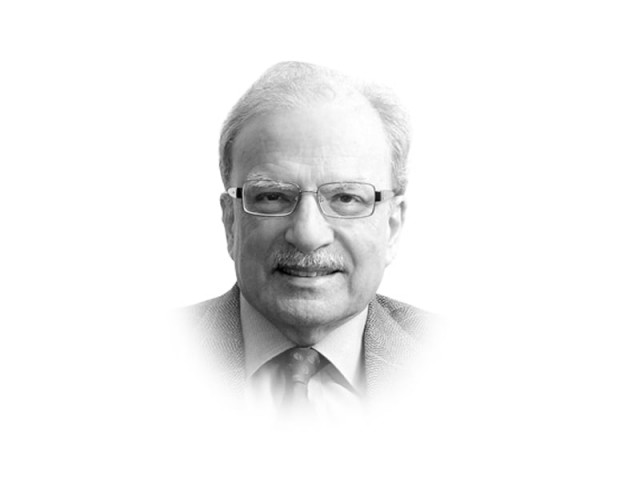Pakistan’s tarred reputation
While Pakistan's dependence on the West for capital continues to increase, the West is becoming wary of Pakistan.

Pakistan’s stagnant exports and the sharp drop in foreign direct investment mean that the country needs large doses of official finance to keep the economy afloat. The capital that is needed can come from two sources. It can be provided by Washington or it can be made available by the multilateral development and financial institutions. In the United States, Congress reigns supreme in money matters. The executive may promise but it is Congress that disposes. Unfortunately for Pakistan, the country’s reputation is not high in that body. As such, the United States will not be able to play in Pakistan’s corner in the World Bank or the International Monetary Fund where Washington has a great deal of influence. It should, therefore, trouble Islamabad that while the country’s senior officials were in Washington holding important discussions on economic matters, two influential publications came out with disturbing stories about Pakistan.
The world has begun to take notice of what it sees as another ugly turn in Pakistan. This is not good for Pakistan and its stressed economy, dependent as they are on external support. However, the country needs a helping hand from abroad, without which it would sink into a deeper hole. Pakistan’s policymakers and the people of Pakistan must realise that the country today does not have the respect of the international community. Two detailed stories in recent days — one in The Economist and the other in The New York Times, brought their readers news about the rise of sectarianism in Pakistan. This has added another dimension to the Pakistani story.
The British journal’s story was about Karachi; that of the American newspaper about Quetta. Reading them together provides a view that is of immense concern for the international community. It is of concern because innocent people are being killed, sometimes in broad daylight and sometimes with the killers making no attempt to hide their identity. The only reason why so many people are being killed is that they profess a different faith than the one to which the killers subscribe. It concerns those who are watching this deteriorating situation that the security forces have not tried very hard to stop the carnage and bring to justice the people who are engaged in it. It is also of concern since the slow disintegration of normal life in two cities, each important in its own way, has begun to showcase what is going wrong in the Muslim world.
Karachi is the nerve centre of the Pakistani economy but is being torn apart by several conflicts among the various components of its fragmented citizenry. The Sindhis, the Muhajir and the Pashtun are fighting for political and economic space. The Islamic radicals, whose numbers have increased significantly because of the influx of tens of thousands of Pashtun from the restive tribal areas, are attempting to force their religious beliefs and cultural norms on the rest of society. This is an unfortunate development for the city’s large and reasonably affluent middle class. Karachi had deservedly earned the reputation of being Pakistan’s most open and modern city. That reputation is being tarnished. According to some observers, Karachi is being Talibanised. If this is the case, it will pose a problem for the United States since its crowded slums will not be within easy reach of the drones, the weapon of choice for America’s counterterrorism efforts. At the same time, a dysfunctional Karachi will add to Pakistan’s many economic woes.
Quetta, the other troubled city, is disturbed by a similar set of problems. Like Karachi, it is also multi-ethnic. Its many diverse communities have come together because of economic and political developments of recent years. Balochistan, of which Quetta is the capital, is rich in mineral resources. One of them, natural gas in Sui, has been fully exploited and now accounts for a significant share of energy consumption. Its successful exploitation brought many highly trained and skilled people from other parts of the country, churning up the ethnic mix of the province. America’s war in Afghanistan brought in another group to the city’s environs, the so-called ‘Quetta shura’. With its supporters armed to the teeth, they have taken over parts of the geographic space in the province. These are troubling tales.
The story Pakistan needs to tell those who are watching the many disturbing developments in the country is that a period of transition is underway. Pakistan is transiting towards a political order in which conflicts will get resolved through discourse and legislation and not through violence. As such, the country needs the West’s support and not scorn at this delicate time in its history.
Published in The Express Tribune, December 10th, 2012.















COMMENTS
Comments are moderated and generally will be posted if they are on-topic and not abusive.
For more information, please see our Comments FAQ